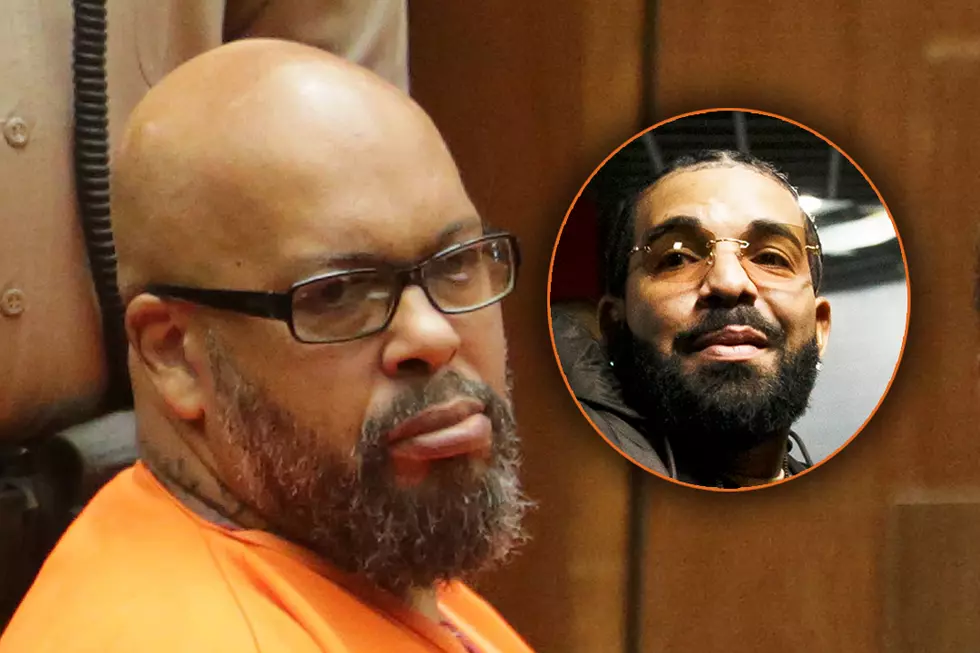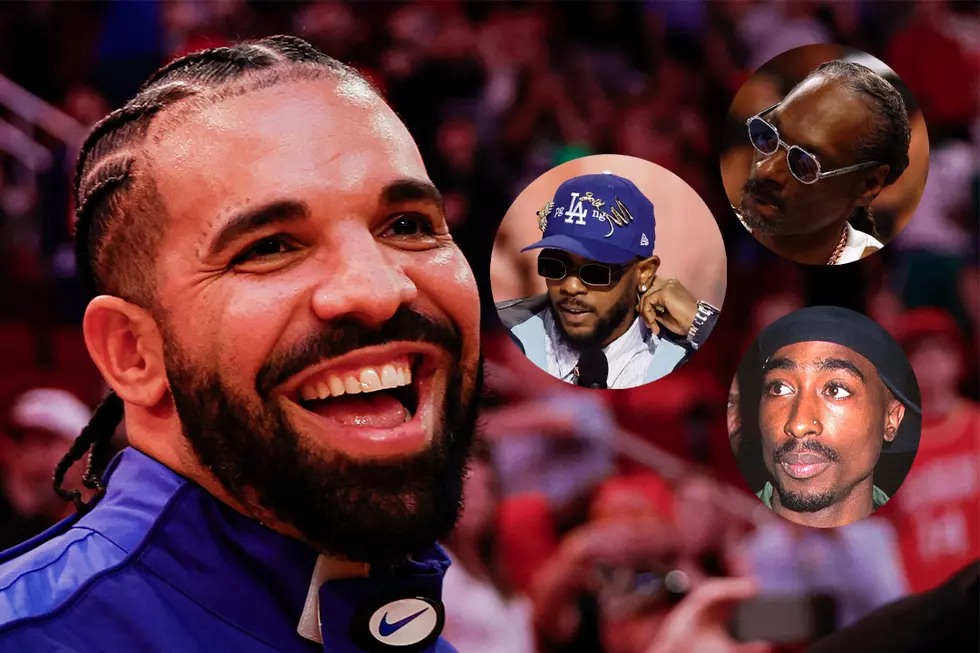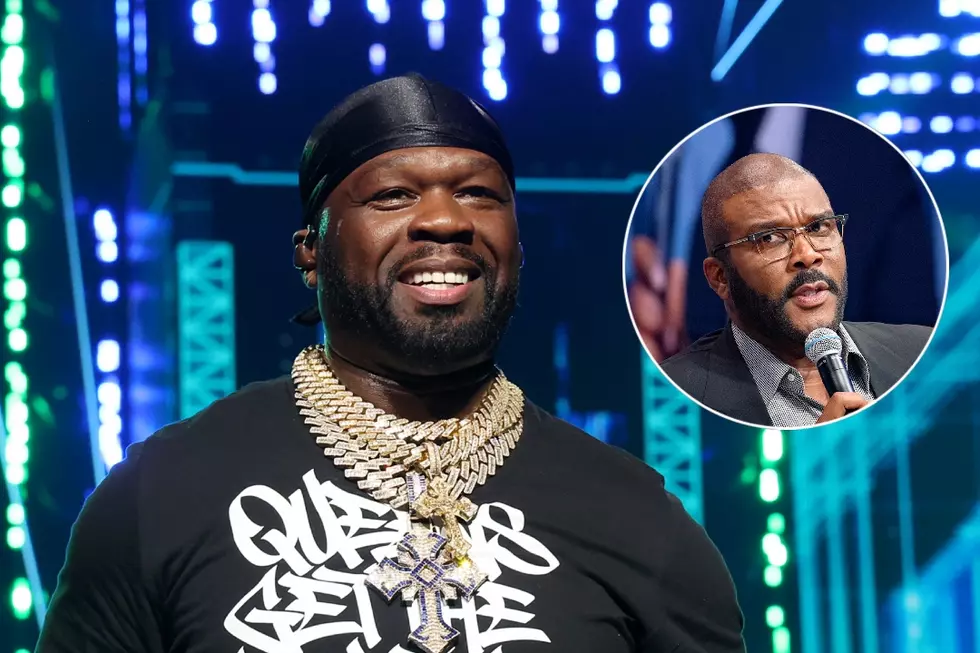![Hard Times [Excerpt From the Dec./Jan. 2012 Issue]](http://townsquare.media/site/812/files/2011/12/young-buck-gallery.jpg?w=980&q=75)
Hard Times [Excerpt From the Dec./Jan. 2012 Issue]
The Voice on the other end of the phone said, “You gonna be all right, man, you hear me?”
Pfft.
Young Buck was experiencing money problems—tax problems, to be precise—and more than 99 of ’em. So for advice and spiritual communion, he had called his boss, 50 Cent, who, in turn, tried to pep him up on the phone (while also recording the conversation, which he later posted online). “A nigga just get confused,” Buck said, clearly in distress. 50 told him, “You gonna be all right, man, you hear me,” to keep Buck optimistic.
Of course, Buck was not really going to be all right. He filed Chapter 11 bankruptcy papers in January, in hopes of reorganizing his finances, as a way to hold off his debts. But in October, the trustee who’d been assigned to his case said reorganization was not viable (in large part because 50 refused to modify Buck’s G-Unit Records contract), and Buck was facing Chapter 7: the liquidation of his assets.
However cold you might think it was for 50 to record and release the conversation, his play was valuable in at least one sense: Lots of rappers are struggling, or have struggled, with keeping their finances in order. MC Hammer, most famously, filed for bankruptcy with a debt of at least $10 million in 1996. More recently, former Crime Mob member Diamond had her car repossessed—during the middle of a video shoot in Atlanta.
But no one’s been talking about it. And no one seems to want to. XXL reached out to a dozen different camps during the last weeks. Not a single artist or executive whose IRS troubles were already a matter of public record was willing to speak to the magazine about their experiences. (That list included Big Boi, Chamillionaire and Ja Rule, among others.)
Keeping one’s money right, and staying on the right side of the law while doing so, is of course an issue that all manner of entertainers have had to deal with. But without getting it twisted or making too broad a statistical claim, we can say that rappers face unusual difficulties that athletes, for example, simply do not.
No, the tax laws aren’t any different for rappers. It’s all the same codes, deductions, forms and filing dates. But it is the case that institutional advantages afforded to other entertainers are nowhere to be found in the world of hip-hop. For starters, some professional sports leagues require rookies and new recruits to attend financial management classes—as if to warn them on the come-up about the hidden pitfalls of sudden money, before the IRS gets curious. Hip-hop requires no such education, nor does it have anything resembling a formal infrastructure in that way.
One barrier to greater financial literacy in the community, in fact, stems from how so few rappers are willing to talk about money problems. Killer Mike, however, is different (as he is in so many other ways). And when asked for comment on the topic in general, he proved to be a geyser of tips and recommendations—as well as critiques for the broader community. “You could sell cereal, milk, cheese, and you rent a store for $500, $600 a month,” he says. “You could open a small bodega. You could do what I just done: You can open up a barbershop.
“I should have opened my barbershop 10 years ago. I actually started seeing return on my money. I would encourage people, for financial literacy, to seek out small businesses. Big Boi started selling pit bulls, and that turned into a thousand dollars per pup. Some years, 100 puppies he sold; some years, 200 he sold… Do something that can put a few hundred dollars back in your pocket weekly.”
That’s just common sense, you might say, if you’re not particularly inclined to cry any tears for the financial woes of various MCs. But there are unique challenges that lay beyond our collective sense of empathy for individuals we think of (and perhaps envy) as stars. And rap finances are complicated. Especially for young artists, who might be making their first legitimate money through their music, record deals are often structured in a way that specifically prevents the recouping of any money beyond an advance. If an artist as venerable and familiar with the game as Snoop Dogg can get tripped up, it can happen to just about anybody. (Snoop was found to owe the IRS more than a quarter-million dollars in 2009, and then another half-million-plus the following February.)
In a genre where being battle scarred and tested can be a sign of status, tax problems seem to be a weakness that hip-hop is ill-equipped to acknowledge, let alone address—thus, 50’s recording of Buck’s tearful phone call, and the half-million-plus views it has netted on YouTube, mockery and all. But none of that helps bring about anything resembling a solution. Social organizations like the Five Million Kids Initiative, run in part by Quincy Jones and Chaka Zulu, have their eyes on teaching financial literacy, among other things, to five million children and adults, but a rap-specific boot-camp course in money does not exist. For now, all we have are the leaked conversations on YouTube.
There's a fantastic verse on Killer Mike’s “That’s Life II,” from this year’s Pl3dge album, that speaks to the chimerical nature of hip-hop wealth. Mike’s track spits fire in almost all directions, from Warren Buffett to more mainstream political voices, but it also offers this warning: “But don’t forget your color, brother, we still muthafuckin’ slaves/And that even go for Puffy, who so muthafuckin’ paid/That he’s richer than these White folks, or at least that’s what he say.”
Put another way: The stacks on stacks on stacks don’t always rise as high as they seem in the videos. Clearly, Mike’s not afraid to speak on it. “It’s not in record companies’ interest to make you financially independent,” he says, laughing at the gallows humor. “They don’t have a vested interest in doing it. The NBA and NFL do have a vested interest in it, because they need your Black ass to stay out of jail, so you could run the ball. But traditionally, in music, it’s made more sense for record companies to keep artists in debt, therefore keeping them putting out art when needing a record, publishing deal, things of that nature. The most financially literate [thing] I can advise any young artist to do is look at your immediate surroundings, while you’re still poor, and figure out what business doesn’t cost much for start-up that you use on a daily basis.”—Seth Colter Walls
**FOR MORE OF THIS STORY, PICK UP THE DEC./JAN. 2011 ISSUE OF XXL, ON STANDS NOW**
More From XXL









